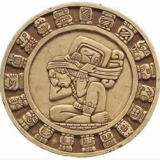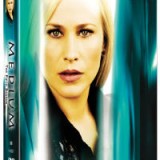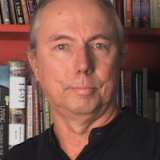“Not in Kansas Anymore: A Curious Tale of How Magic is Transforming America,” by Christine Wicker
Like most people who have an interest in the spiritual and the mystical, I have often questioned the connection between magic and religion in our times. In her book “Not in Kansas Anymore: A Curious Tale of How Magic is Transforming America”, Christine Wicker makes a real journey of discovery. She probes the shadowy corners of current American culture for clues and discovers a treasure trove of the magical and the mysterious. The corners, it seems are a lot bigger than you would expect and they all reveal different types of religion.
Apparently we are practicing ever more diverse rituals according to our beliefs. Christine’s research began innocently enough. While she was researching her best seller “Lily Dale: The True Story of the Town That Talks to the Dead”, Wicker discovered that real wizards still exist in 21st Century America. She also stumbled across the “Magical Community” that operates beneath the surface of our technologically controlled country.
And so her travels began. Amongst others, she uncovered a family of elves, US soldiers who chant to pagan gods for strength and power as well as soccer moms who practice real magic spells as voodoo rituals. Spirituality, it seems, takes many forms in modern America. Much is borrowed from the past and adapted to suit the laptop and cell-phone age.
Wicker’s writing style is highly entertaining. She mixes incisive observation with elegantly written dialogue to paint a textured picture. Her story-telling can both fill you with dread and give you a belly-laugh in quick succession.
With journalistic roots as an award-winning religion reporter for the Dallas Morning News, Wicker comes with impeccable credentials. The painstaking, extensive research that has so obviously been undertaken in this book makes it a true page-turner.
The most appealing quality in Wicker’s writing is the humor with which she relates the fascinating stories she has collected. Her extensive travels take her to vampire dens, satanic rituals with black magick spells, and witches’ covens. She explores the needs and desires of the people involved in an attempt to find reason behind their personal choices.
She doesn’t talk in a detached way about her subject. The characters are detailed and more three-dimensional than you will find in some novels. Wicker has a talent for encapsulating the characterizations into a very small space, making you feel that you really do understand what makes these people tick. You really feel that you know Tracy the vampire with vegetarian leanings and Silva from the Church of Euthenasia. Zardoa the elf who lives in a duplex in Santa Rosa, California and Nichole, the apprentice witch from Salem are fleshed out fully in this wonderfully conversational text.
The title of the book is clearly derived from “The Wizard of Oz”. This classic tale of parallel universes existing in Middle America demonstrated to aficionados just how the events in everyday life could be re-interpreted using extreme representations of occult figures. The title choice also has you wondering how Christine Wicker with her Southern Baptist Christian background found herself attracted to such an unusual subject. Perhaps her family name has a distant connection with “The Wicker Man” or maybe the “Straw Man”?
“Not in Kansas Anymore” is a wide-ranging piece of writing. You’ll find references from African Folk Medicine to William Butler Yeats and from Tolkien to Salvador Dali. You’ll be introduced to obscure concepts, organizations and individuals like the Hermetic order of the Golden Dawn, Myrna the Death Puppet, Mother Bunch’s Closet, Ordo Templi Orientis and the Queen of the Vampires.
Wicker provides us with a very personal view of these diverse activities. Although this is not an academic treatise, she attempts to resolve some of the disparities that exist between “normality” and this underbelly of everyday living. She points out that, far from being a minority belief, most of us harbor some experience or evidence that these mystical and magical occurrences are valid.
Although most of us keep these thoughts under wraps, not talking openly about them, they form a foundation of our belief systems. Mainstream religions would talk down any suggestion that their faith is based on magic. However, Wicker points out, the margin between Jesus turning water into wine and witches casting spells is pretty fine. This need for magic in their lives leads to people taking up Voodoo and Hoodoo, Satanism and Vampirism. It’s right there in your back yard, if you look for it.
Catherine Wicker’s work in this field is not finished. “Lily Dale” led her to “Not in Kansas Anymore” and her next publication will take her personal study of the effect of religion to the political level. The Kennedy’s feature briefly in “Kansas” but she is obviously picking up new threads wherever she goes. Whatever else, we can be sure she will apply her “Bridget Jones’ Diary” style to this fascinating subject. We can be sure of a good laugh as we learn.
This book will appeal to all types of reader. For sociologists and anthropologists it provides a fascinating view of the way a sophisticated civilization can operate efficiently with a whole raft of underground cults. For believers in magic, the spiritual and the mystical, it will extend their understanding of the “Magical Community” in America and whom you might find at a magic stores. The religious may find some understanding for what may appear to be factions at odds with their own beliefs. The casual reader will find it absorbing, witty and they may find that they need to re-evaluate how they pigeon-hole cranks and crazies.







